Question And Answer
Publications
Articles, publications, books, tools and multimedia features from the U.S. Institute of Peace provide the latest news, analysis, research findings, practitioner guides and reports, all related to the conflict zones and issues that are at the center of the Institute’s work to prevent and reduce violent conflict.
Oral Histories: Iraq Provincial Reconstruction Teams (2008-2009)
The Iraq PRT program has highlighted the challenges that the U.S. government faces in conducting operations in conflicted environments. The Iraq PRT Project collected insights and lessons learned from government, military, and non-governmental officials. Interviews were conducted by the Association for Diplomatic Studies and Training under a contract with the Institute of Peace.
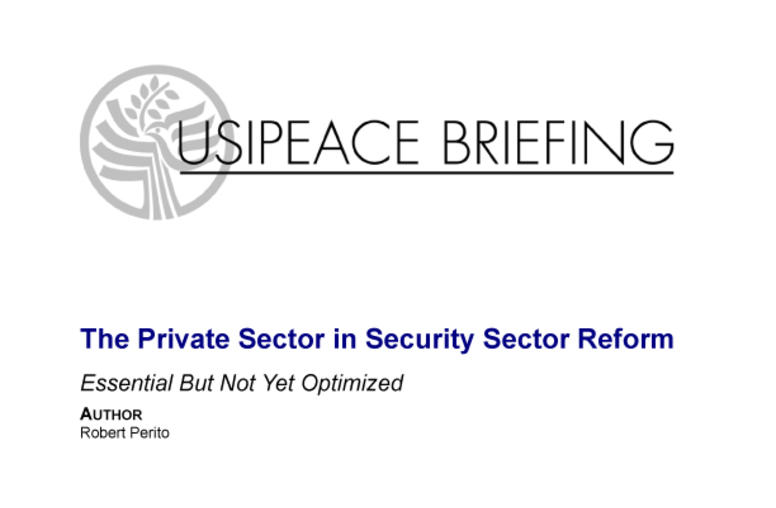
The Private Sector in Security Sector Reform: Essential But Not Yet Optimized
While the U.S. and world economies are slowing markedly, Security Sector Reform (SSR) is a growth industry for the private sector. U.S. government employees may set SSR policy and design projects, but implementation is extensively outsourced to private contractors.
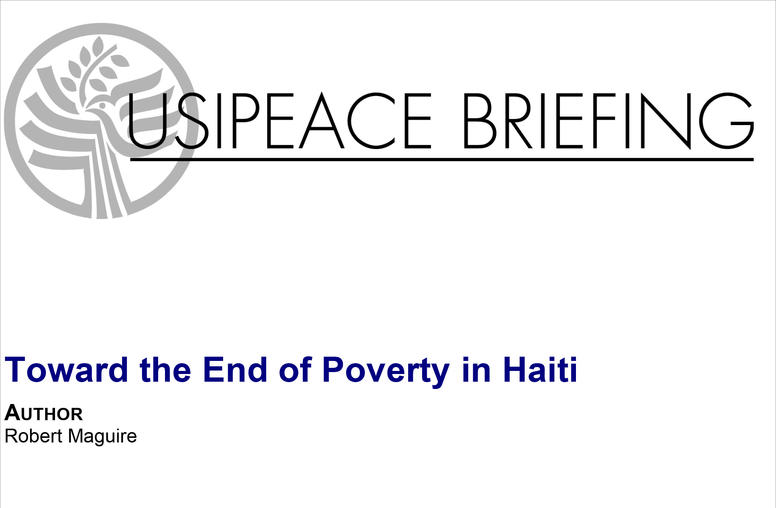
Toward the End of Poverty in Haiti
In July 2006, Haitian poet and historian Jean-Claude Martineau spoke at USIP and said that Haiti is the only country in the world with a last name—“Haiti, poorest country in the western hemisphere” —as described in the media. Sadly, in the two years since, conditions have worsened. Four severe storms that struck Haiti in September 2008 only exacerbated the already critical problem of the country’s poverty.

Toward Resolving Chad’s Interlocking Conflicts
The fragility of the Chadian government, as well as the fragmentation among Chadian civil society, political parties, and rebel movements, poses significant challenges that Chadian civil society, regional governments, African institutions and the international community must address with a coordinated strategy. Although the situation in the country is often examined through the lens of the Darfur crisis, several internal factors drive the instability in Chad and its regional actions.
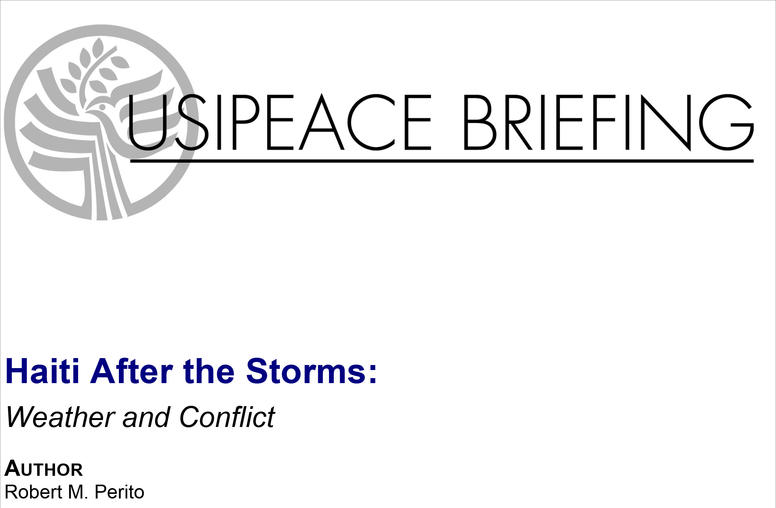
Haiti After the Storms: Weather and Conflict
In September 2008, four hurricanes and tropical storms—Fay, Gustav, Hannah and Ike—slammed into Haiti with devastating force. Nearly 800 people were killed, 300 remain missing and more than 500 were injured.
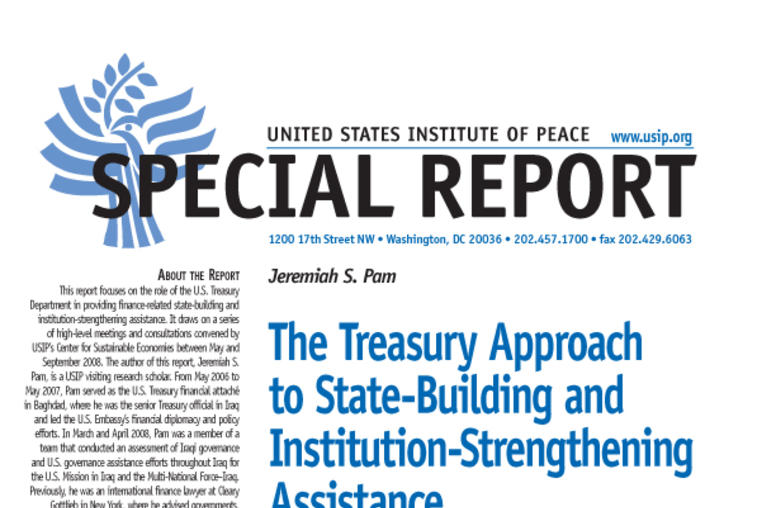
The Treasury Approach to State-Building and Institution-Strengthening Assistance: Experience in Iraq and Broader Implications
Drawing on a series of consultations convened by USIP's Center for Sustainable Economies, author Jeremiah S. Pam focuses on the role of the U.S. Treasury Department in finance-related state-building and institution-strenthening. Specifically, the report identifies key dynamics in the field and discusses aiding local institutions, providing technical assistance, improving interagency coordination and enabling local champions for such efforts.
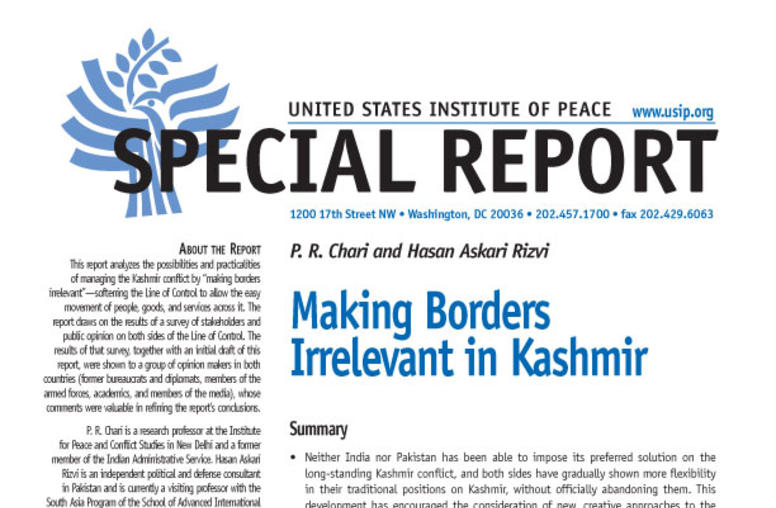
Making Borders Irrelevant in Kashmir
In this report, a duo of experts from India and Pakistan explore the prospect of "making borders irrelevant" in Kashmir through increased movement of people, goods and services across the "Line of Control." The findings draw on the results of a survey of stakeholders and public opinion on both sides.
Keeping an Eye on an Unruly Neighbor: Chinese Views of Economic Reform and Stability in North Korea
What is the nature of internal Chinese debate regarding North Korea? In the event of instability in the Korean peninsula, how would Beijing respond? Drawing on discussions with North Korea specialists during a Center for Strategic and International Studies-USIP delegation visit to the People's Republic of China, this report explores these and related issues.
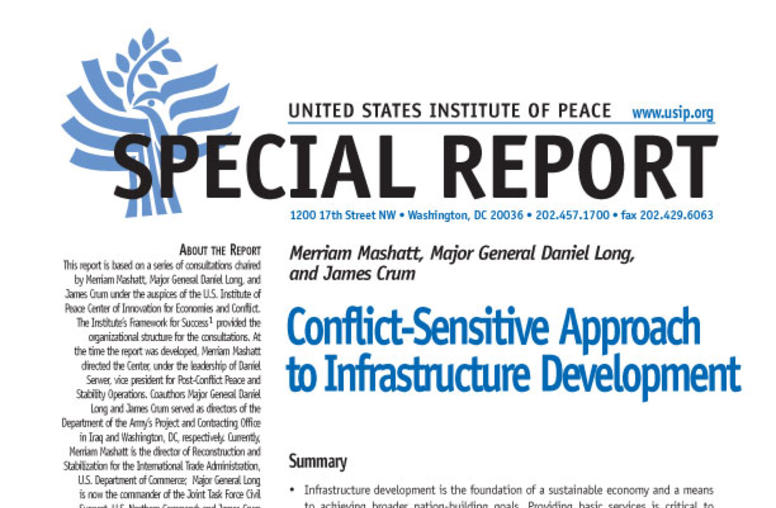
Conflict-Sensitive Approach to Infrastructure Development
What is the nexus between conflict analysis and building infrastructure? What roles can new and upgraded buildings, highways, and the like play in winning the "battle for hearts and minds?" How can the U.S. government streamline processes aimed to facilitate infrastructure development in conflict zones?
Afghanistan's Economy: On the Right Road, But Still a Long Way to Go
Although Afghanistan has now laid the foundation for a market-based economy, substantial challenges still linger. Many of the problems Afghanistan’s economy faces are typical for those rebuilding after war: high prices from an immature system that lacks adequate private sector competition; resistance to change from a state-controlled system; the dearth of human capital; corruption; insecurity; and inequalities created by the market system itself.